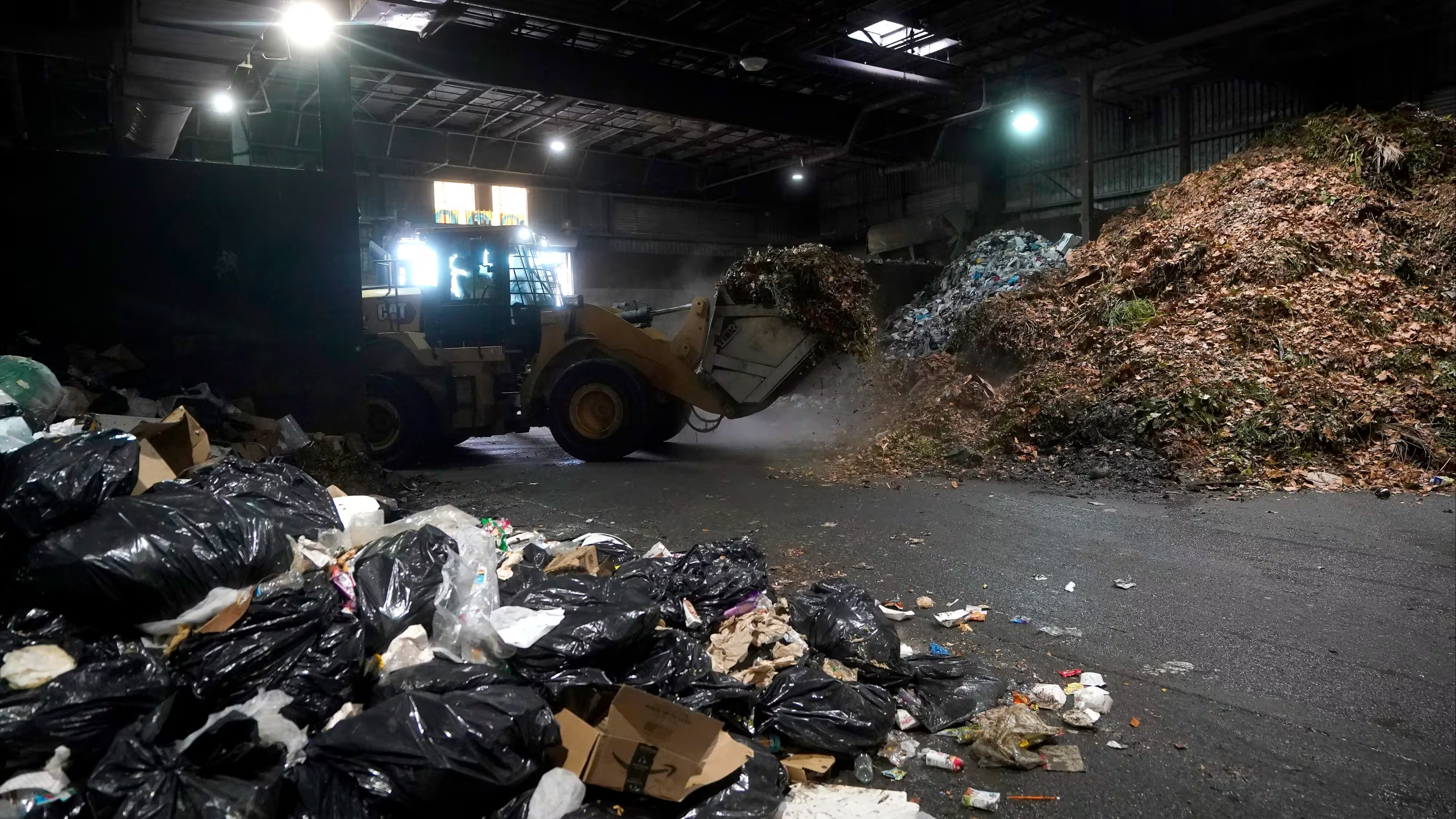By Melina Walling
More than one-third of the food produced in the U.S. is never eaten. Much of it ends up in landfills, where it generates tons of methane that hastens climate change. That's why more than 50 local officials signed onto a letter Tuesday calling on the Environmental Protection Agency to help municipal governments cut food waste in their communities.
The letter came on the heels of two recent reports from the EPA on the scope of America's food waste problem and the damage that results from it. The local officials pressed the agency to expand grant funding and technical help for landfill alternatives. They also urged the agency to update landfill standards to require better prevention, detection and reduction of methane emissions, something scientists already have the technology to do but which can be challenging to implement since food waste breaks down and starts generating methane quickly.
Tackling food waste is a daunting challenge that the U.S. has taken on before. In 2015, the U.S. Department of Agriculture and the EPA set a goal of cutting food waste in half by 2030, but the country has made little progress, said Claudia Fabiano, who works on food waste management for the EPA.
“We've got a long way to go,” Fabiano said.
Researchers say the EPA reports provide sorely needed information. One report found that 58% of methane emissions from landfills come from food waste, a major issue because methane is responsible for about a quarter of global warming and has significantly more warming potential than carbon dioxide.
With the extent of the problem clearly defined, some elected leaders and researchers alike hope to take action. But they say it will take not just investment of resources but also a major mindset shift from the public. Farmers may need to change some practices, manufacturers will need to rethink how they package and market goods, and individuals need to find ways to keep food from going to waste.
So for the first time since the 1990s, the EPA updated its ranking of preferred strategies for waste reduction, ranging from preventing wasted food altogether (by not producing or buying it in the first place) to composting or anaerobic digestion, a process by which food waste can be turned into biogas inside a reactor. Prevention remains the top strategy, but the new ranking includes more nuances comparing the options so communities can decide how to prioritize their investments.
But reducing waste requires a big psychological change and lifestyle shift from individuals no matter what. Researchers say households are responsible for at least 40% of food waste in the U.S.
It's a more urgent problem than ever, said Weslynne Ashton, a professor of environmental management and sustainability at the Illinois Institute of Technology who was not involved with the EPA reports. Americans have been conditioned to expect abundance at grocery stores and on their plates, and it's expensive to pull all that food out of the waste stream.
“I think it is possible to get zero organic waste into landfills,” Ashton said. “But it means that we need an infrastructure to enable that in different locations within cities and more rural regions. It means we need incentives both for households as well as for commercial institutions.”
With the problem clearly defined and quantified, it remains to be seen whether communities and states will get extra help or guidance from the federal level — and how much change they can make either way. The EPA has recently channeled some money from the Inflation Reduction Act toward supporting recycling, which did include some funding for organics waste, but those are relatively new programs.
Some local governments have been working on this issue for a while. California began requiring every jurisdiction to provide organic waste collection services starting in 2022. But others don’t have as much of a head start. Chicago, for instance, just launched a city-wide composting pilot program two weeks ago that set up free food waste drop-off points around the city. But prospective users have to transport their food scraps themselves.
Ning Ai, an associate professor of urban planning and policy at the University of Illinois Chicago, said the report could be bolstered by more specific information about how different communities can adopt localized solutions, since preventing food waste might look different in rural and urban areas or in different parts of the country. But she was also impressed that the report highlighted tradeoffs of environmental impacts between air, water and land, something she said is not often as aggressively documented.
“These two reports, as well as some of the older ones, that definitely shows up as a boost to the national momentum to waste reduction,” said Ai, who was not involved with the EPA's research.
Associated Press climate and environmental coverage receives support from several private foundations. See more about AP’s climate initiative here. The AP is solely responsible for all content.









